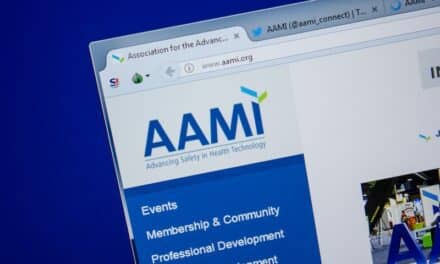Patient Safety Awareness Week, a highlight of the United for Patient Safety Campaign, will be observed March 12-18, 2017. Led by the National Patient Safety Foundation (NPSF), a central voice for patient safety since 1997, Patient Safety Awareness Week is time dedicated to raising awareness about patient safety among healthcare professionals and the public.
“We have a lot of exciting activity planned, and we are hoping to see large numbers of health care organizations, health professionals, and members of the public get involved,” says Tejal K. Gandhi, MD, MPH, CPPS, president and chief executive officer at NPSF. “This is a time for all of us to share what we know, learn from others, and celebrate the real victories, large and small, that we’ve seen in patient safety over the past 20 years.”
Research suggests that as many as 440,000 patients die each year as a result of preventable medical harm, and that many others suffer significant and lasting morbidity, and quality-of-life implications. Given this evidence, NPSF advocates for addressing patient safety as a serious public health concern. These themes will be addressed during activities planned for the week:
- On Tuesday, March 14, from 1 to 2 pm Eastern Time, NPSF (@theNPSF) will host a Twitter Chat on “Patient Safety: What Patients Want (and Need) to Know.” They will be joined by governmental, advocacy, and professional organizations and individuals to share tips, resources, and tools. Anyone may participate by using the hashtag #psaw17chat.
- On Wednesday, March 15, from 2 to 3 pm Eastern Time, NPSF is hosting a complimentary webcast, “The Voice of the Patient and the Public.” Gandhi will moderate a panel featuring speakers Marshall Allen, reporter for ProPublica; Rosemary Gibson, senior advisor at the Hastings Center; and Martin J. Hatlie, JD, president and CEO of Project Patient Care. The program is free of charge, but registration is required online at http://bit.ly/psawweb17.
- Throughout the week, NPSF is encouraging those on social media to demonstrate the fact that “We are all patients” by posting photos of themselves in hospital gowns or in patient care settings and using the hashtag #WeAreAllPatients.
NPSF is also urging health professionals and members of the public to take a pledge in support of patient safety. Those wishing to participate in Patient Safety Awareness Week can visit the website, www.unitedforpatientsafety.org, to take the pledge, share their plans for the week, get ideas for activities, download campaign materials, or honor a loved one touched by medical harm.
NPSF is marking its 20th anniversary in 2017, and this is the 15th year that the organization has led Patient Safety Awareness Week.




